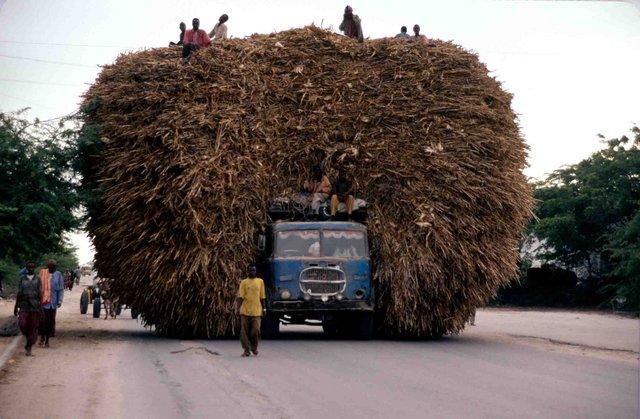Dump trucks are one of the most commonly used vehicles in the construction and mining industries. These heavy-duty trucks are used to transport materials such as dirt, gravel, sand, and other loose materials to and from construction sites. However, the misuse of dump trucks has become a significant problem in the transportation industry. Overloading of dump trucks is a dangerous practice that not only puts the driver’s life at risk but also endangers the lives of other road users.

According to the National Highway Traffic Safety Administration (NHTSA), overloaded dump trucks are more likely to be involved in accidents than properly loaded ones. The agency reports that overloaded trucks have a higher risk of tire failure, brake failure, and even rollovers. Overloaded dump trucks also cause significant damage to roads and bridges, leading to costly repairs for the government and taxpayers.

The overloading of dump trucks is a common practice in the transportation industry, especially in developing countries where regulations are not as strict. Dump truck operators overload their trucks to save time and increase their profits. Overloading can also be attributed to the lack of education and training for drivers on the importance of proper loading and weight distribution.
To understand the gravity of the situation, we compiled a list of dangerous transportation practices associated with overloading dump trucks.

Overloading beyond the capacity of the truckDump trucks come in different sizes, and each has a specified weight capacity. Overloading beyond the capacity of the truck puts excessive strain on the tires, suspension, and braking system. This increases the risk of a blowout or brake failure, which can lead to a catastrophic accident.
Uneven weight distributionUneven weight distribution is another common problem associated with overloading dump trucks. When the weight of the load is not evenly distributed, it can cause the truck to tip over, especially when going around corners or navigating uneven terrain.

Overloading on steep inclinesOverloading on steep inclines is a dangerous practice that puts the driver’s life at risk. The weight of the load can cause the truck to lose traction, especially on wet or slippery surfaces. This can lead to a rollover, which can be fatal.
Overloading in bad weather conditionsOverloading dump trucks in bad weather conditions such as heavy rain or snow is a recipe for disaster. The added weight of the load makes it difficult for the driver to control the truck, especially on wet or icy roads.
Overloading on bridgesOverloading dump trucks on bridges is a serious safety hazard that can cause the bridge to collapse. Overloaded trucks put excessive stress on the bridge structure, leading to structural damage that can compromise the integrity of the bridge.

Overloading without securing the loadOverloading without securing the load is a reckless practice that endangers the lives of other road users. Loose materials can fly off the truck and hit other vehicles or pedestrians, causing serious injuries or fatalities.
Overloading with no regard for road weight limitsDump trucks are subject to weight limits on public roads to prevent damage to roads and bridges. Overloading with no regard for these weight limits is illegal and puts the driver’s life at risk. It can also result in fines and other penalties for the driver and the company.
In conclusion, overloading dump trucks is a dangerous practice that puts the lives of drivers and other road users at risk. Dump truck operators must ensure that their trucks are properly loaded and that weight limits are not exceeded. Governments must also enforce strict regulations and penalties to deter dump truck operators from overloading their trucks. By taking
Video:
